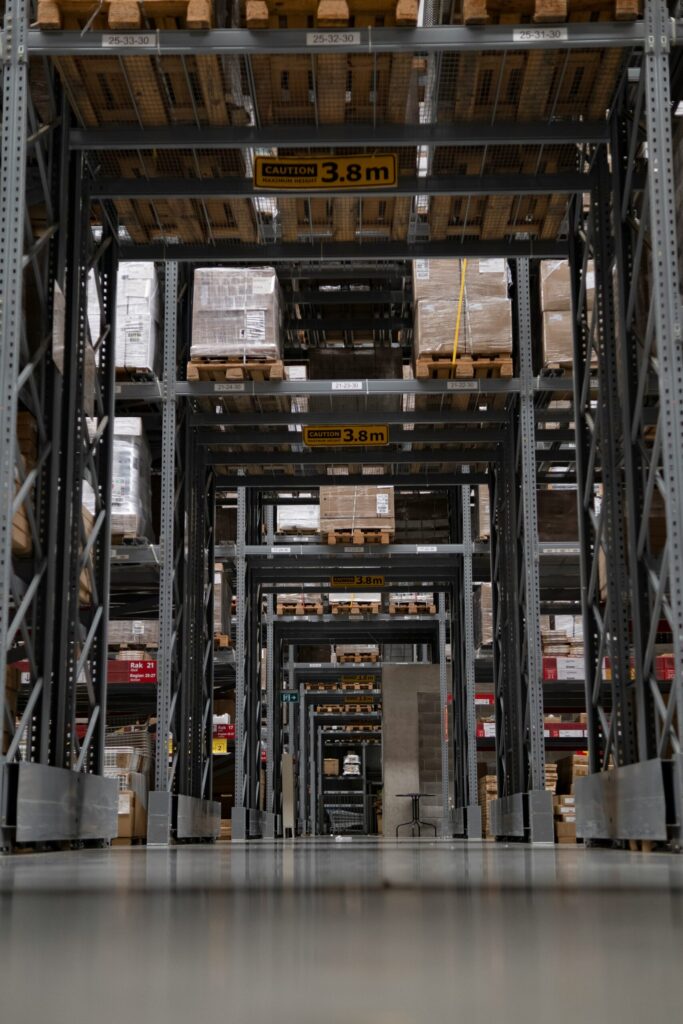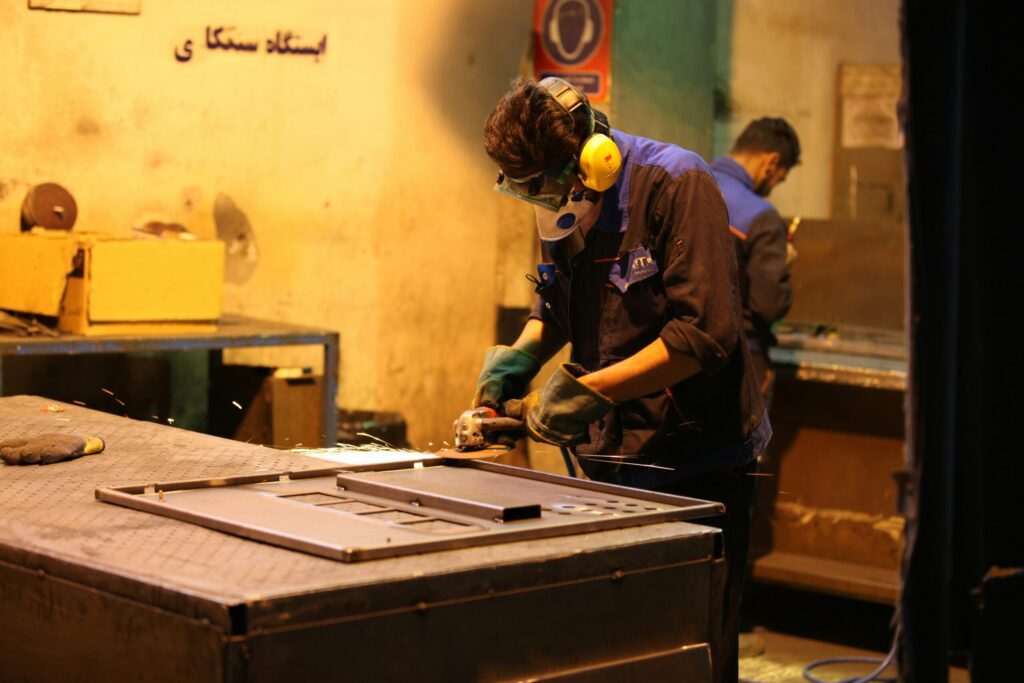Five Below is one of those stores that makes you wonder how they make money selling everything so cheaply. Founded in 2002, it’s a specialty discount retailer where most items are priced at $5 or below—though they’ve expanded that range to include items up to $40 for certain products.
As of 2025, Five Below operates over 1,800 stores across the U.S. Walk into any suburban shopping center and you’ll probably spot the bright colors and the crowds of teenagers browsing phone accessories, snacks, room decor, and seasonal items.
The workforce is substantial but heavily part-time. According to their 2025 report, Five Below employs about 7,300 full-time and 15,900 part-time crew members. That ratio tells you something important right away—this is primarily a part-time retail operation. If you’re looking for full-time hours without moving into management, you might struggle.
Read Also: JetBlue Careers: What You Need to Know
Types of Jobs at Five Below
 Five Below careers hiring breaks down into three main categories, and where you fit depends on what you’re looking for.
Five Below careers hiring breaks down into three main categories, and where you fit depends on what you’re looking for.
Store and retail roles are where most people start. You’ve got sales associates (sometimes called crew members), stockers, key holders, assistant store managers, and store managers. Sales associate is the entry point—you’re working the register, helping customers find stuff, restocking shelves, and keeping the store organized. It’s standard retail work. Not complicated, but not easy either when the store gets slammed.
Part-time sales associates are the backbone of the operation. You’re scheduled for shifts that might range from four hours to maybe eight on a busy day. The work itself is straightforward: ring up customers, restock the constantly-depleting inventory, help people locate items, and deal with the occasional mess or difficult customer.
Assistant store managers and store managers handle the operational side—scheduling, inventory management, dealing with district management, handling escalated customer issues, and making sure the store hits its sales targets. These roles come with more hours, more responsibility, and more stress.
Distribution and warehouse roles exist if you’re near one of their distribution centers (they call them “shipcenters”). Warehouse associates, forklift operators, receiving and shipping coordinators—these positions involve moving inventory, loading trucks, managing stock, and keeping the supply chain running. The work is more physically demanding than retail floor work, but often comes with more consistent hours.
Corporate and office roles are available at headquarters, covering HR, finance, marketing, operations, and other business functions. These aren’t entry-level retail jobs—they’re professional positions requiring relevant experience and education. Unless you’re already in a corporate career track, you’re probably not starting here.
Read Also: High Demand Jobs in the USA 2025 for Foreigners
Five Below Careers: What You’ll Actually Make
Let’s talk money, because that’s probably why you’re considering this job in the first place.
Sales associates—the most common position—make between $13 and $16 per hour according to Glassdoor data. Zippia reports an average of about $14.56/hour. Part-time sales associates tend to fall on the lower end, around $12 to $14 per hour.
Do the math on that. If you’re getting 12 hours a week at $13/hour, that’s $156 before taxes. Maybe $125 after taxes. That’s about $500 a month. It’s supplemental income or student money, not rent-and-groceries money unless you’re living with family or have other income sources.
General “associate” roles (which seem to be their catch-all term for hourly crew) pay roughly $13 to $18 per hour, according to Glassdoor. The higher end of that range likely involves more responsibility, better performance, or just being in a higher cost-of-living area.
Assistant store managers make around $37,642 annually, according to Zippia data—that’s about $18.10/hour. Still not great, but at least you’re getting more consistent hours. Store managers reportedly make around $25.26/hour per Indeed, which translates to roughly $52,500 annually if you’re working full-time. That’s more livable, though you’re also dealing with all the stress of running a retail location.
Warehouse roles, like forklift operators, average about $17.96/hour per Zippia—slightly better than retail floor work and often with more predictable scheduling.
The bottom line? Five Below pays what most value-retail chains pay for entry-level work. It’s not good money. It’s just not. You’re not building savings on $14/hour with limited hours. You’re covering gas, paying for some meals, maybe helping with a phone bill.
Read Also: Jobs that make $3000 a month without a Degree
Five Below Careers: Benefits and Company Culture
Five Below markets itself as a fun place to work. Their careers site emphasizes “perks of working at 5B” like flexible scheduling and an energetic work culture. The company values they list include things like “Wow Our Customers,” “Unleash Your Passion,” “Hold the Penny Hostage” (retail-speak for being cost-conscious), and “Work Hard, Have Fun and Build a Career.”
That language is typical corporate retail messaging. Some of it reflects reality, some of it doesn’t.
The “flexible scheduling” thing cuts both ways. Yes, they’ll work around your school schedule or other commitments—that’s genuinely helpful if you’re a student. But “flexible” in retail often means “we’ll schedule you whenever we need you, and your hours will fluctuate wildly based on store traffic and labor budgets.” One week you get 15 hours, the next week you get 6. That kind of flexibility makes it really hard to budget or plan your life.
They claim to offer a “comprehensive suite of benefits” including health support, financial benefits, and work-life balance. For most part-time crew members, those benefits are pretty limited. Full-time employees and management get better benefits, but if you’re working 12 hours a week as a sales associate, you’re not getting much beyond your hourly wage and maybe an employee discount.
The work culture varies dramatically by location. Some stores have cool managers who create a decent environment. Others are poorly managed, understaffed, and stressful. It’s retail—your experience depends heavily on your specific store leadership and team.
Read Also: Physician Associate in the UK (2025/2026): Registration, Jobs, Pay, and Visa Options
The Reality of Working at Five Below Careers
Let’s get into what employees actually report about working here, because the company line only tells you so much.
Hours are inconsistent and often minimal.
Multiple Reddit posts from Five Below employees mention being guaranteed only 4 hours per week, with typical schedules ranging from 8 to 12 hours unless you’re a strong performer or the store needs extra coverage. One employee wrote: “Guaranteed 4 hrs, usually 8-12 unless they think you aren’t doing that well.”
Think about what that means. Four hours guaranteed. That’s one short shift. You could apply, go through the hiring process, get trained, and then work one four-hour shift per week. That’s $52 before taxes at $13/hour. For a lot of people, that’s not even worth the gas and time to get there.
The hours you do get depend on store sales and labor budgets. When the store is busy—back-to-school season, holidays, weekends—you might get more hours. During slow periods, hours get cut. This is standard in retail, but it makes Five Below a really tough primary income source.
The work itself is typical retail.
You’re on your feet your entire shift. You’re dealing with customers who range from pleasant to nightmarish. Also, you’re restocking inventory constantly because the store gets picked over quickly. You’re cleaning up after people. You’re running register during rushes. Furthermore, you are doing go-backs (returning misplaced items to their proper location).
Some employees describe it as “chill.” Others point out the stress during busy periods and the high expectations despite low pay. One Reddit user noted that working at Five Below can be stressful when the store is poorly staffed, which seems common.
The customer base skews young—lots of teenagers and families. That can be fun if you enjoy that energy. It can also be exhausting if you’re dealing with groups of unsupervised kids making messes or customers who don’t take the store seriously because everything’s cheap.
The hiring and scheduling process can be erratic.
Multiple people on Reddit report applying online and hearing nothing for weeks. Some mention showing up in person and getting more traction. Others say the hiring timeline depends entirely on whether the store manager is on top of things, which varies widely.
One person asked: “How long does it take to get a call? Probably the store manager would’ve reached out by now.” The responses suggested that follow-up is inconsistent, and you might need to check in yourself rather than waiting.
Once you’re hired, scheduling happens weekly and can change with little notice. You might request certain days off and get scheduled anyway. You might be scheduled for four hours and asked to stay longer. This unpredictability is hard if you’re juggling school, another job, or family responsibilities.
Turnover seems high
This is typical for low-wage retail. People leave for better-paying jobs, get frustrated with inconsistent hours, or move on when life circumstances change. High turnover often means the store is constantly training new people, which can make shifts more chaotic and put more pressure on experienced employees.
Read Also: What You Need to Know About United Healthcare: Plans, Costs, and What Nobody Tells You
Career Growth—Does It Actually Exist?
Five Below does promote from within, and that’s not just marketing talk. The career path looks something like: Sales Associate → Key Holder → Assistant Store Manager → Store Manager. From there, ambitious people might move into district or regional management or transition to corporate roles.
Several employees mention opportunities to move up if you show initiative and stick around. The company explicitly includes “Build a Career” in its stated values, suggesting it wants people to see this as more than just a temporary gig.
But let’s be realistic about what “career growth” means here. Moving from a sales associate making $14/hour to an assistant manager making $18/hour is technically an advancement, but you’re still not making great money. You are, however, taking on significantly more responsibility and stress.
Store manager positions pay better—around $52k annually—and that’s when you’re actually approaching a livable wage in many markets. But you’re also working retail management hours, dealing with staffing issues, inventory problems, corporate pressure to hit targets, and all the challenges of running a store.
For some people, especially those starting young with no degree or specialized skills, this path makes sense. You can start at 18 or 19, work your way up over several years, and end up managing a store by your mid-20s with no college debt. That’s a legitimate path, even if it’s not glamorous.
For others, getting stuck in retail management feels like a trap—you’re working 50+ hour weeks for $52k, dealing with constant stress, and not necessarily building skills that transfer well to other industries.
Warehouse and distribution center roles might offer paths into logistics, operations, or supply chain careers. Those skills are more transferable if you decide to leave retail.
Read Also: Good-Paying Jobs in the USA
Pros and Cons—Let’s Be Honest
Five Below Careers: The pros are limited but real.
The scheduling flexibility genuinely helps students. If you’re in high school or college and need something that works around classes, this can fit. You won’t get rich, but you can make some spending money while keeping your primary focus on school.
The work environment can be fun. You’re around merchandise that changes constantly, you might work with people your age, and the job isn’t mentally demanding. Also, you’re not solving complex problems. You’re just doing retail tasks.
There’s potential for part-time employment without needing special skills or experience. If you need a first job or a quick job, the barrier to entry is low. They’ll hire people with no retail experience and train them.
The employee discount is there, though it’s on already-cheap items, so it’s not exactly life-changing. Still, if you shop there anyway, getting stuff even cheaper helps.
Internal advancement is genuinely possible if you’re interested in retail management and willing to put in the time.
Five Below Careers: The cons are significant.
The pay is low—really low for the cost of living in most areas. $13-$14/hour might have been okay a decade ago. In 2025, it barely covers basics, even if you’re getting full-time hours, which most people aren’t.
Hours are inconsistent and often minimal. Guaranteeing only 4 hours per week is almost insulting. That level of inconsistency makes it nearly impossible to rely on this income for anything important.
The hiring and scheduling processes are unpredictable. You might apply and never hear back. You might get hired and then barely get scheduled. Communication seems to vary wildly by location.
The work can be stressful despite low pay. Being understaffed, dealing with difficult customers, and working holiday rushes for $14/hour feels exploitative to a lot of people.
High turnover means you’re constantly working with new people who don’t know what they’re doing yet. That puts more pressure on experienced employees and makes shifts less efficient.
There’s no real security or consistency. Your hours fluctuate based on store performance. Your schedule changes weekly. You could be cut to almost no hours with little notice if sales drop.
Read Also: Hospitality Jobs in the USA (Hiring Immediately)
Is Five Below Right for You?
Here’s how to think about whether this job makes sense for your situation.
Five Below works if:
You’re a student looking for supplemental income and need flexibility around classes. You’re not trying to pay rent with this job—you’re trying to have gas money and spending money while living at home or in dorms.
You need a first job with a low barrier to entry. No experience required, minimal skills needed, straightforward work—it’s an accessible starting point.
You’re okay with retail work and don’t mind being on your feet, dealing with customers, and doing repetitive tasks. Some people genuinely don’t mind this type of work.
You’re interested in potentially moving up in retail management over time. If you start young and are willing to stick with it, the advancement path exists.
You need something temporary while you’re between other opportunities. It’s a bridge job, not a destination.
Five Below careers do not work if:
You need a consistent, reliable income to cover actual living expenses. The unpredictable hours and low pay make it nearly impossible to budget or survive independently.
You’re looking for full-time work without going into management. The part-time structure means you’re unlikely to get 40 hours per week unless you’re in a management or key holder position.
You need a predictable schedule. The weekly scheduling changes and the expectation that you’ll be available whenever they need you make planning difficult.
You want good wages right away. Entry-level positions pay entry-level wages, and even management positions don’t pay particularly well relative to the responsibility.
You prefer structured environments with clear communication. Retail scheduling and operations can be chaotic, and based on employee reports, Five Below is no exception.
Read Also: Medical Aid Prices in the USA
Five Below Careers: How to Actually Get Hired and Make It Work
If you’ve decided to apply to Five Below careers, here’s how to navigate the process.
Use the official careers site
Use this to browse and apply for positions in stores, distribution centers, or corporate roles. But don’t just apply online and wait. Retail hiring often moves faster when you follow up in person. Apply online, then visit the store a few days later and ask to speak with the manager about your application. It shows initiative and puts a face to your name.
Five Below Career: Be prepared for delays.
Multiple people report that the hiring timeline is unpredictable. Some managers are on top of it; others aren’t. If you don’t hear back within a week, follow up. If you still don’t hear anything after two weeks, they’re probably not interested or are disorganized—consider whether you even want to work somewhere that can’t manage their own hiring process.
Five Below Careers: Emphasize availability during the application process.
The more available you are, the more likely you’ll get hired and get hours. If you can work weekends, evenings, and holidays, say so. Those are the shifts they struggle to fill.
Five Below Careers: Highlight any retail or customer service experience,
Even if it’s informal. Babysat and dealt with parents? That’s customer service. Worked at a summer camp? That’s working with the public. Anything that shows you can handle customers and work on a team helps.
Be realistic about what you’re signing up for.
This is a low-wage, part-time retail job. The work is fine but not exciting. The pay is minimal. The hours fluctuate. Go in knowing that, and it won’t blindside you later.
If you get hired and aren’t getting enough hours
Communicate with your manager about picking up shifts. Be reliable—show up on time, do your work well, don’t call out unnecessarily. Managers give more hours to people they trust. Also, be willing to pick up shifts when other people call out. That gets you noticed and builds goodwill.
Think about this job as part of a larger plan.
If you’re a student, it’s income while you’re in school, but your degree is the real investment. Also, if you’re trying to build a retail career, understand the timeline for advancement and whether that path actually appeals to you long-term. If you’re using this as a temporary bridge, know what you’re bridging toward and actively work on that next step.
Read Also: No Degree Highest Paying Jobs in the USA
Five Below Careers: Real Talk About Retail Scheduling
One thing that doesn’t get explained enough is how retail scheduling actually works, and it’s important to understand this if you’re considering Five Below careers or any similar retail job.
Stores are given labor budgets based on projected sales. When sales are good, there’s more money in the budget for hours. When sales drop, labor budgets get cut. This means your hours as an employee fluctuate based on how well the store is performing—something completely outside your control.
Managers are under pressure to stay within their labor budget while keeping the store staffed enough to function. They’re constantly balancing “we need more people on the floor” with “corporate says I can’t give out more hours.” You’re caught in the middle of that tension.
The result? During busy seasons like back-to-school and holidays, you might get 20+ hours per week. During slow periods like January and February, you might get 6 hours. This makes financial planning nearly impossible.
The “4 hours guaranteed” that employees mention is likely the legal minimum the company commits to, so you’re technically an employee. But nobody can live on 4 hours per week. If that’s all you’re consistently getting, you’re essentially an on-call employee with no real income security.
This is why Five Below works best as a supplemental job or student job, but not as your primary income source unless you’re in management with guaranteed full-time hours.
Making the Decision
Five Below careers offer what a lot of value-retail chains offer. Accessible entry-level work with low barriers, some degree of flexibility, and the possibility of advancement if you’re willing to stick with retail management. What it doesn’t offer is good pay, consistent hours, or much stability for hourly employees.
If you’re a high school or college student living at home and just need some extra cash, this could work fine. You’ll make enough for spending money, you’ll gain some work experience, and the flexible scheduling will accommodate your school commitments.
If you’re trying to pay rent, support yourself, or cover significant expenses, this job probably won’t cut it unless you can secure full-time hours in a management position—and even then, you’re looking at modest pay for significant responsibility.
Be honest with yourself about what you need from a job. If Five Below meets those needs, given your current situation, go for it. But if you need more stability, better pay, or more consistent hours, keep looking or at least treat this as a temporary stepping stone while you pursue something more sustainable.
The work itself isn’t terrible. It’s just retail—straightforward, sometimes monotonous, occasionally frustrating, but not complicated. What determines whether this job works for you is whether the pay and hours align with your financial needs and life circumstances. For some people at certain stages of life, it does. For others, it’s just not enough.





